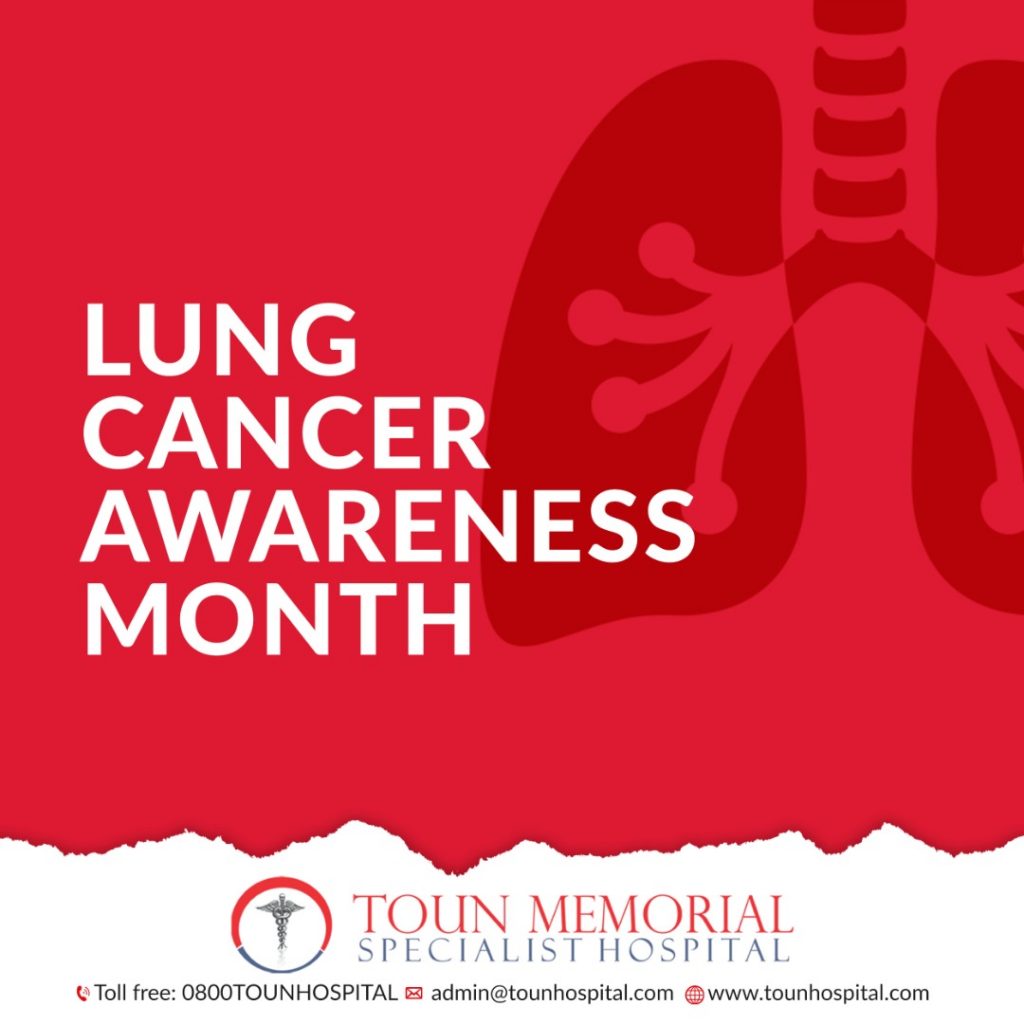SMOKING IS THE BIGGEST RISK FACTOR FOR LUNG CANCER.

Lung cancer is a group of diseases characterized by abnormal growths (cancers) that started in the lungs
People should seek medical care if they have blood in their sputum when coughing, are experiencing unexplained weight loss, or have sudden shortness of breath.
Treatment options depend on the type of lung cancer present and the stage of the tumor
5 TYPES OF LUNG CANCER

Lung cancer encompasses a group of different types of tumors. Lung cancers usually are divided into two main groups that account for about 95% of all cases. The division into groups is based on the type of cells that make up cancer.
The two main types of lung cancer are characterized by
- the cell size and
- the cell type of the tumor when viewed under the microscope
They are called small cell lung cancer (SCLC) and non-small cell lung cancer (NSCLC). NSCLC includes several subtypes of tumors.
SCLCs are less common, but they grow more quickly and are more likely to metastasize than NSCLCs. Often, SCLCs have already spread to other parts of the body when the cancer is diagnosed. About 5% of lung cancers are of rare cell types, including carcinoid tumor, lymphoma, and others.
WHAT CAUSES LUNG CANCER?

Risk factors for lung cancer include smoking, exposure to air pollution, and genetics.
Cigarette smoking is the most important cause of lung cancer. Research as far back as the 1950s clearly established this relationship.
Cigarette smoke contains more than 4,000 chemicals, many of which have been identified as causing cancer. A person who smokes more than one pack of cigarettes per day has a 20-25 times greater risk of developing lung cancer than someone who has never smoked.
Once a person quits smoking, his or her risk for lung cancer gradually decreases. About 15 years after quitting, the risk for lung cancer decreases to the level of someone who never smoked. Cigar and pipe smoking increases the risk of lung cancer but not as much as smoking cigarettes.
About 90% of lung cancers arise due to tobacco use. The risk of developing lung cancer is related to the following factors:
- The number of cigarettes smoked
- The age at which a person started smoking
- How long a person has smoked (or had smoked before quitting)
- Other causes of lung cancer, including causes of lung cancer in nonsmokers, include the following:

read more on: https://www.emedicinehealth.com/slideshow_smoking_effects/article_em.htm
follow us on facebook: https://www.facebook.com/tounhospitalnigeria/



